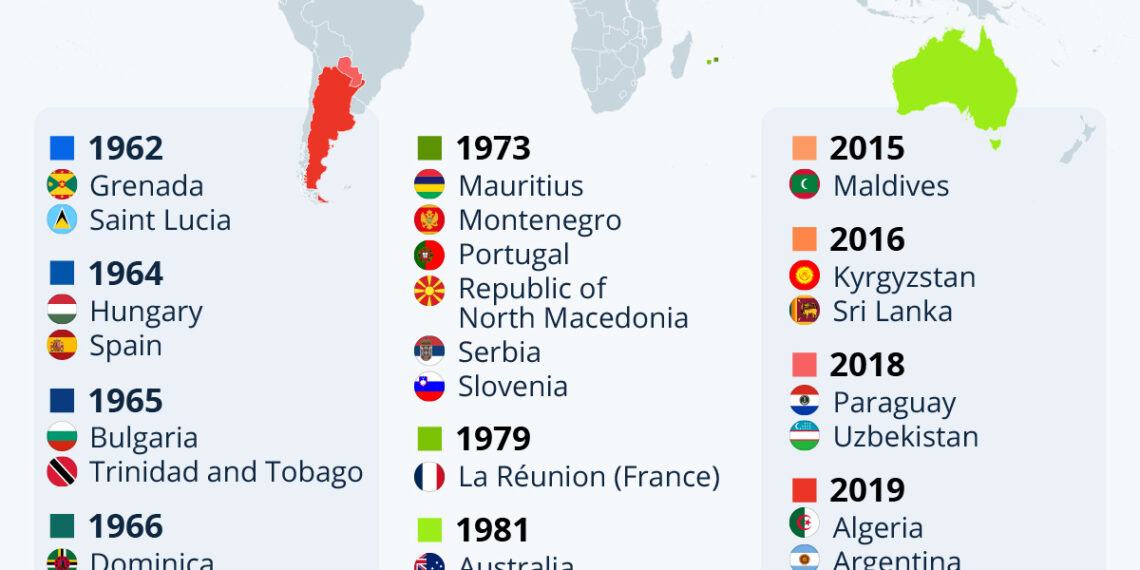The Global Fight Against Malaria: Success Stories and Ongoing Challenges
Understanding Malaria
Malaria is a life-threatening disease caused by parasites transmitted to humans through the bites of infected female Anopheles mosquitoes. This disease remains a significant global health burden, particularly in tropical and subtropical regions.
Malaria Eradication Efforts
Efforts to eradicate malaria have intensified over the decades, leading to significant successes. According to the World Health Organization (WHO), by January 2025, a total of 45 countries and one territory had successfully eradicated malaria. Achieving zero indigenous cases for a minimum of three consecutive years is a requirement to apply for WHO’s certification of malaria-free status.
Recent Successes in Malaria-Free Certifications
In 2025, Georgia was highlighted as the latest country to achieve WHO malaria-free certification, a critical milestone following similar successes in Egypt and Cape Verde in 2024. These achievements serve as a testament to the effectiveness of global health initiatives and collaborative efforts to combat malaria.
Georgia: A Case Study
Georgia’s journey to malaria eradication showcases the importance of robust health systems, proactive measures, and public awareness campaigns. By implementing targeted interventions, such as vector control and community engagement, Georgia was able to eliminate the disease from its territory.
Egypt and Cape Verde: Leading the Way
Similarly, Egypt and Cape Verde have made strides in combating malaria, demonstrating that with the right strategies—such as improved diagnostics, treatment access, and anti-malaria campaigns—countries can join the ranks of malaria-free nations.
Historical Context: Malaria-Free Milestones
The declaration of malaria-free status is not new. The United States, along with Italy and the Netherlands, was declared malaria-free in 1970. This long-standing success reflects decades of investment in public health infrastructure, research, and community health education. The impact of these efforts is profound, reducing the disease’s prevalence and contributing to healthier populations.
Current Global Landscape of Malaria
Despite significant progress in some regions, malaria remains endemic in 83 countries worldwide. India, for instance, reported more than two million malaria cases in 2023, highlighting ongoing challenges in controlling the disease, particularly in densely populated areas.
India: The Endemic Challenge
India’s struggle with malaria continues to be a major public health challenge. Factors contributing to the disease’s persistence include climatic conditions conducive to mosquito breeding, inadequate healthcare infrastructure in rural areas, and challenges in vector control.
The Role of the World Health Organization
The WHO plays a critical role in coordinating global efforts to combat malaria. Through its strategies and recommendations, the organization fosters international collaboration to enhance detection, prevention, and treatment of malaria. The WHO’s 2030 Global Technical Strategy for Malaria emphasizes the need for innovation, improved data collection, and stronger health systems to facilitate sustained progress against malaria.
Community Engagement in Malaria Prevention
Community involvement is essential in the fight against malaria. Local populations must be educated about prevention methods, early symptoms of malaria, and the importance of seeking prompt medical attention. Community health workers can serve as vital links between health systems and households, promoting awareness and facilitating access to services.
Advances in Malaria Research and Technology
Recent years have seen significant advancements in malaria research, including the development of novel diagnostic tools, vaccines, and treatments. The WHO has endorsed the malaria vaccine RTS,S/AS01, marking a significant milestone in efforts to combat the disease, especially in high-burden areas.
The Road Ahead: Challenges and Opportunities
While the progress made in eradicating malaria is commendable, challenges remain formidable. Addressing malaria in regions that still face endemic rates requires continued investment, innovation, and global cooperation. Future strategies must focus on sustainable practices, advancing research, and enhancing public health infrastructure to combat not just malaria, but also other diseases that affect populations globally.




